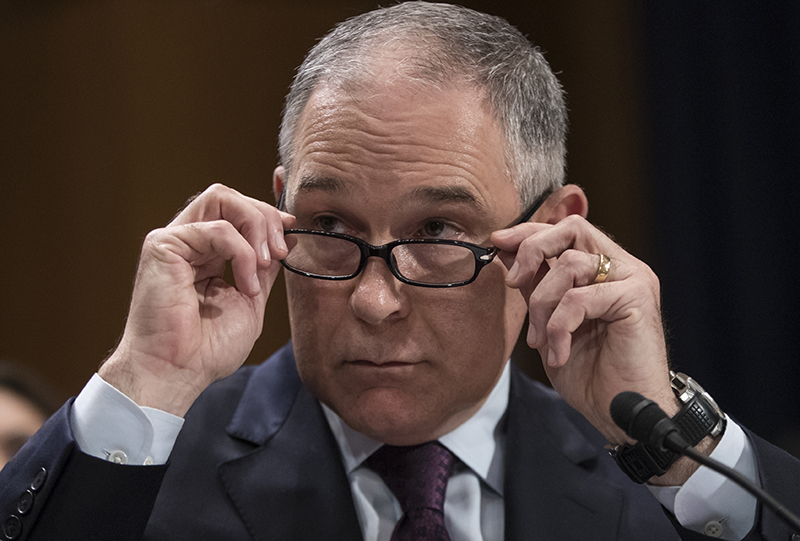AUGUSTA — Fellow Mainers, please voice your concern about the proposed appointment of Scott Pruitt as administrator of the Environmental Protection Agency.
Perhaps most concerning is Pruitt’s relationship with fossil fuel companies. In 2014, he used his position as Oklahoma’s attorney general to reprint a letter written by lobbyists for an oil and gas company, which questioned the relationship between natural gas drilling and air pollution, and send it to the EPA on his office’s letterhead.
Pruitt claims there is still debate over the cause of climate change. He is wrong. According to the Intergovernmental Panel on Climate Change’s 2014 Synthesis Report, “Human influence on the climate system is clear, and recent anthropogenic emissions of greenhouse gases are the highest in history.”
The major driver of greenhouse gas emissions is the burning of fossil fuels. Pruitt’s actions underscore his lack of expertise in environmental health and willingness to use his government position to benefit business, without regard for science or public health.
Climate change threatens public health. Climate change causes more extreme weather events, such as droughts, heavy rainfall and heat waves. Droughts increase the risk of forest fires and hurt farming and livestock production. Heavy rainfall can contaminate drinking water through land runoff and wash out roadways, making it harder for people to get medical care or travel for work.
Warmer temperatures and shorter winters cause ticks to come out of hibernation earlier and to move further north, resulting in an increase in Lyme disease. According to the Maine Center for Disease Control and Prevention, from 2001 to 2015, the incidence rate of Lyme disease in Maine soared from 8.4 cases per 100,000 people to 90.2 cases. The most recent peak was in 2014, when the incidence rate reached 105.9 cases per 100,000.
Climate change affects air quality, which has a direct impact on vulnerable Mainers, such as children, the elderly and those living with respiratory disease. According to the American Lung Association’s 2016 State of the Air Report, 124,015 adults and 24,860 children in Maine have asthma. These rates have been increasing annually, and are higher than national averages.
Climate change also threatens economic growth and development. Extreme weather events and sea level rise increase social erosion, decrease shoreline and limit real estate development and outdoor tourism, a $646 billion industry. To make matters worse, local governments bear the brunt of recovery efforts after extreme weather events, which strain local resources and increase the burden on taxpayers.
Still not convinced that climate change is a problem? Talk with a maple syrup farmer or a lobsterman. Anyone who relies on the land or sea for his or her livelihood has already been directly affected by climate change.
The Gulf of Maine is warming faster than 99 percent of the world’s water bodies. The higher temperatures are killing new lobsters before they have time to grow, and sending mature lobsters north to cooler waters. As such, the lobster population off the coast of Maine is already in decline.
In 2009, Donald Trump and his three children joined more than 50 influential climate change activists in signing an open letter, published in The New York Times, urging then-President Obama to pass legislation to restrict greenhouse gas emissions. The Trump family signed the letter because the evidence is consistent and overwhelming: Humans are contributing to global warming, and the consequences are serious.
You can do something. Sen. Angus King has already said he will vote against Pruitt; please contact his office and thank him for standing up for public health. Please contact Sen. Susan Collins and ask her to denounce Pruitt’s nomination now; let her know you are concerned about Pruitt’s lack of expertise in environmental health and his use of his public office to promote business interests instead of public health.
There is a balance between economic growth and environmental health. While rolling back emissions standards seems like it will boost industrial and economic development, existing standards are insufficient to match global warming trends – evidenced by the changes we have already seen in Maine. As such, making standards weaker will hasten environmental and economic harm and have even more serious public health consequences.
These are not projections – they are reality. Please support Sens. Collins and King in passing sensible environmental policies that both generate economic growth and promote the well-being of the public.
Send questions/comments to the editors.


